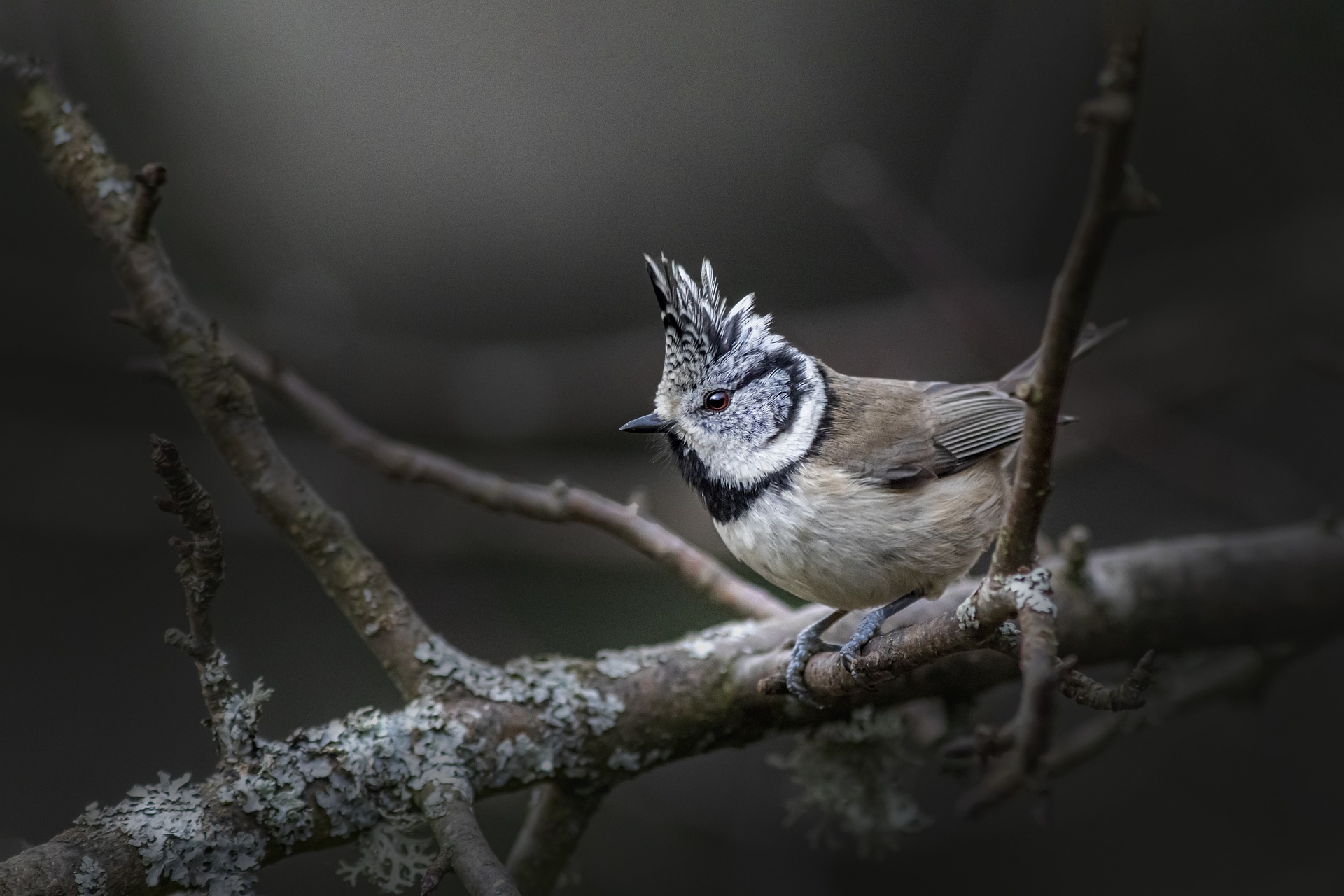The European Crested Tit (Lophophanes cristatus), formerly known as the Crested Tit (Parus cristatus), is a small bird species belonging to the family Paridae, which includes tits, chickadees, and titmice. Here are some key characteristics and information about the European Crested Tit:
- Physical Appearance: The European Crested Tit is easily distinguished by its striking appearance. It has a distinctive black-and-white pattern on its head, with a prominent crest of feathers that can be raised or lowered depending on its mood. The body is primarily olive-brown, with white underparts and a black bib-like marking on the throat.
- Distribution: The European Crested Tit is native to Europe and parts of Asia, including the temperate forests and woodlands of Scandinavia, western and central Europe, and extending into Russia and Asia Minor. It prefers mature coniferous forests but can also be found in mixed and deciduous woodlands.
- Habitat: European Crested Tits inhabit a variety of forested habitats, including coniferous and mixed forests, as well as mountainous regions with dense vegetation. They are often associated with mature trees, where they forage for insects, seeds, and small fruits.
- Behavior: These birds are highly agile and acrobatic, often seen flitting among branches and foliage in search of food. They have a varied diet, feeding on insects and their larvae, seeds, berries, and occasionally small vertebrates. During the winter months, they may join mixed-species foraging flocks to increase foraging efficiency and safety.
- Breeding: European Crested Tits typically breed in late spring or early summer. They construct their nests in tree cavities or crevices, often using materials such as moss, feathers, and fur to line the nest. The female lays a clutch of eggs, which she incubates while the male brings food to her. Both parents participate in feeding and caring for the young.
- Conservation: The European Crested Tit is not currently considered globally threatened, but local populations may be impacted by habitat loss and fragmentation, particularly due to forestry practices and urbanization. Conservation efforts focus on preserving and restoring suitable habitat, as well as promoting sustainable forest management practices.
Overall, the European Crested Tit is a charming and charismatic bird species that adds beauty and diversity to Europe’s forest ecosystems. Its striking appearance and lively behavior make it a favorite among birdwatchers and nature enthusiasts.
Visited 161 times, 21 visit(s) today
Views: 288
Subscribe to the newsletter:
